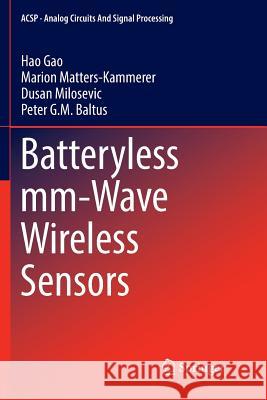Batteryless MM-Wave Wireless Sensors » książka
topmenu
Batteryless MM-Wave Wireless Sensors
ISBN-13: 9783319892269 / Angielski / Miękka / 2019 / 138 str.
Kategorie:
Kategorie BISAC:
Wydawca:
Springer
Seria wydawnicza:
Język:
Angielski
ISBN-13:
9783319892269
Rok wydania:
2019
Wydanie:
Softcover Repri
Ilość stron:
138
Waga:
0.22 kg
Wymiary:
23.39 x 15.6 x 0.81
Oprawa:
Miękka
Wolumenów:
01
Dodatkowe informacje:
Wydanie ilustrowane











